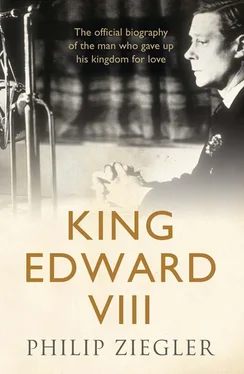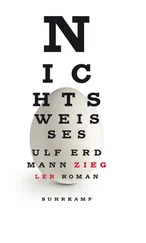His indifference to the charms of Japan did not blind him to the fact that the Japanese were ‘a very great power in the World and their navy and their infantry is amazingly efficient’. 74He told the King that the Japanese navy was copied from the British, the army from the Germans and the press from the Americans. ‘And how wise they are from the viewpoint of a young nation, which can never hope to emulate ourselves, but who are rapidly, if they haven’t done it already, coming up to the level of a continental power!! And I should add the Yanks!!’ 75
This greatness, he considered, had been achieved in spite of rather than because of the imperial family. The Prince surveyed his hosts with bilious disapproval. The Emperor he never met, since he was insane and confined to his palace; with the Empress conversation was conducted through an interpreter and confined exclusively to the weather and the cherry blossom. 76In the absence of the Emperor, he was entertained most frequently by the young Prince Regent, Hirohito, who would try to talk French though he had no understanding of the language. The journalists tried to depict the two young princes as bosom friends but Eliot reported ‘the idea that he felt any real friendship for the Prince Regent is a pure myth, though perhaps the latter felt a sort of timid affection for him’. 77
‘My God, one has to be careful what one says unless one can be quite quite sure one is alone,’ the Prince told Freda Dudley Ward. 78He managed generally to keep his feelings under control. He ‘got on excellent terms with all those with whom he could converse,’ wrote Thomas, ‘and generally gave the impression that Tokyo was the one place he had set out from England to see’. 79Eliot clearly felt him hypercritical, yet admitted ‘he never failed in charm and courtesy when brought face to face with any Japanese’. 80He was equally successful with the press. Incensed by the plethora of restrictions imposed upon them by the Japanese authorities, the journalists accompanying the tour decided in future to boycott it. The Prince called them together and talked them round. One correspondent who had been most active in advocating a press boycott ‘rose and said that after hearing HRH’s remarks he had entirely changed his views. He was now in favour of giving a full and favourable account of the Prince’s doings.’ 81
The Japanese courtiers were much struck by the way the Prince mixed informally with mere commoners. There was debate as to whether Hirohito should do the same and tremendous excitement was caused when the Prince Regent was observed personally to thank the landlord of the hotel where the Prince of Wales was staying at Hakone. So very condescending a gesture was unprecedented in the history of the imperial family. Eliot noted how the Prince’s presence breathed life into the atrophied court, ‘even the Empress became slightly skittish’. 82
Informality could, however, become indiscretion. The Prince forgot his own remarks about the keen hearing of the Japanese, and though he kept his opinion of his hosts to himself, he aired his views on other subjects with disconcerting freedom. Lord Reading, he told Eliot, was clever but not at all the man to be Viceroy. Aware of the attentiveness of those around him, the Ambassador had to beg the Prince to remember that many Japanese spoke English. 83He was apt too to change plans at the last moment or cancel expeditions for which elaborate and expensive arrangements had been made. When called to order by the senior members of his staff he would be penitent for a while, but soon transgressed again. Eliot remembered one occasion aboard Renown when he and Halsey together tried to persuade the Prince to mend his ways. ‘HRH was sitting in a large high-backed chair close to the wall and as the sermon proceeded gradually wriggled upwards until he squatted on the top of the back and from that elevation regarded his two elderly monitors with a most impish and incredulous smile.’ 84
Eliot and Halsey might note his imperfections, a few of his hosts might have suffered from his whims and unpunctuality, but to the vast majority of the Japanese who encountered him or followed his doings he seemed little short of perfection. Piers Legh told his father that the Prince had ‘made as great an impression here as he had ever done before. His reception everywhere has been nothing short of marvellous, and he has apparently completely captured the country by storm. People who live here say they have never seen anything to compare with it. I know it is going to do an enormous amount of good here.’ 85In spite of his reservations about some aspects of the Prince’s behaviour, Sir Charles Eliot would not have dissented from that opinion.
And so it was home again at last. ‘How splendidly HRH has done – a true Ambassador of Empire,’ Sir Reginald Wingate wrote to Cromer. ‘I do hope the Public will now let him take a rest and holiday from these endless functions which must be terribly wearing.’ 86
9
‘The Ambassador of Empire’
THE PRINCE OF WALES GOT BACK FROM THE FAR EAST IN July 1922. It was not until April 1925 that he completed his imperial tours with a visit to South Africa. Between those dates, however, he twice visited Canada and once the United States. The second of those two voyages was to prove something of a turning point in his life.
‘I always feel that I have a right to call myself a Canadian because I am, in a small way, a rancher,’ he told the Canadian Club at the end of 1922. 1To the Prince the ranch was more than just a plaything, as her dairy was to Marie Antoinette; it was the only piece of land which he actually owned himself and it represented reality in a world which he found increasingly artificial. He corresponded regularly with the ranch manager, took an intelligent interest in the building up of the stock and prided himself in particular on the excellence of his shorthorns. When he visited Canada in the autumn of 1923 it was above all to inspect his ranch and spend some weeks there.
He could not escape without some junketing in the great cities. ‘The Prince gets here on Tuesday,’ Ernest Hemingway told Ezra Pound from Toronto. ‘Prince Charming, the Ambassador of Empire, the fair haired bugger.’ 2There was an awful sameness about the ceremonies, so much so that when a provincial mayor lost a page of his speech and yammered helplessly after: ‘Not only do we welcome Your Royal Highness as the representative of His Majesty the King, but we …’, the Prince obligingly completed the hallowed phrase, ‘also welcome you for yourself’. 3But some events were unscripted. In Quebec he danced all night with an attractive woman, only to discover next morning that she was a journalist from New York. ‘I was had for a mug,’ he told Freda Dudley Ward, ‘but she was quite nice about it and said she wouldn’t say too much despite the fact that she had got off with me. I think she’s a sport.’ 4She was, but the Prince was to discover a year later that not all journalists were equally sporting.
There were no journalists on the ranch, and the general public, or what little there was of it in rural Alberta, left the Prince in peace. He threw himself with zest into his role as rancher, riding around the fences of his four thousand acres, inspecting the stock, ordering new equipment. ‘I’ve even helped to muck out the cow house,’ he told the King, ‘and I chop and saw up wood and I can assure you that it’s very hard work indeed.’ 5His staff were delighted to see him so contented and harmlessly employed, though less enthusiastic about the nature of their occupations – ‘Our conversation is largely of sheep-dips, shorthorns and stallions,’ Godfrey Thomas reported gloomily. 6Nor did the Prince pretend that it was more than a temporary role: ‘It’s a fine healthy life and a real rest for the brain … But of course one couldn’t stick it for very long.’ 7
Читать дальше












